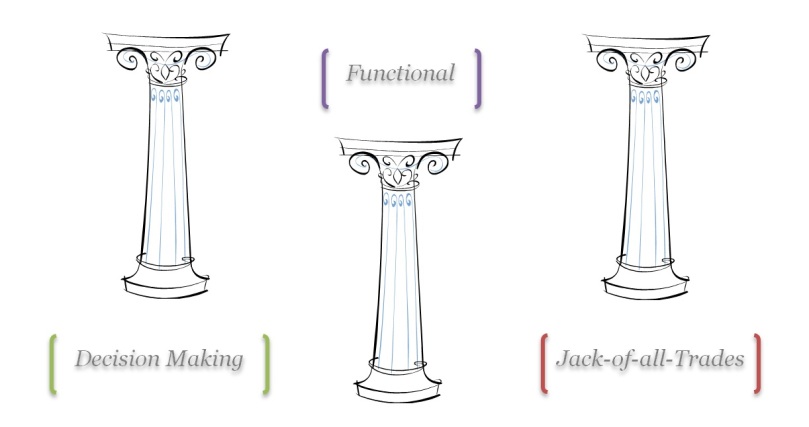For years now I’ve been involved in NGOs and I’m constantly being surprised with how people perceive Board Members and how Board Members themselves perceive their role. To some, a Board is a group of people who endlessly do meetings after meetings with no avail and to others, it’s some mythical, grandiose, elitist group who got special powers to lead the organization. So let me help you demystify all that…
My involvement ranges from small local clubs to a national organizations to branches of international organizations. Irrespective of shape, size or topic of those NGOs, I can easily draw a line of similarity among them.
To start with, the Board is sometimes called Board of Directors, Steering Committee, Executive Board or Executive Committee, so in spite of the naming diversity, the roles and responsibilities stay the same.
So let’s talk about the core of the issue. Board members have 3 key roles that form the pillars of any NGO and are as follows:
Decision Making: Board member are usually the founding members or are elected members that lead the organization. In this context, all major decision making in the organization goes through them. Now it has been noticed over and over again that many Board Members become passive and rather apathetic to decisions being taken, which makes the whole organization go biased towards the opinions of the remaining Board Members. So if you’re on a Board of an NGO and you see this happening around you, don’t freak out, you’re not alone…its a trend!
Yet it’s important to deal with this issue as it is crucial to have all Board Members involved in all decisions or else you’ll start seeing resistance and conflicts arising here and there every once in a while, especially from those same inactive Board Members.
What makes decision making in NGOs different from Private Sector or Governmental Institutions, is the fact that everyone’s opinion matters and most decisions are done either democratically or through consensus, so it should never be a one man show. If it seems to be or become a one man show, then you know it’s about time to change some things…
Organizational/Executive/Functional: In addition to having decision making role, all Board have a distribution of roles and responsibilities where the most common structure is “President, Vice President, General Secretary, Treasurer & Accountant” thus each of those individuals not only has his decision making role, but also a functional role to play, whether it’s taking care of financials, or internal communication or following up on tasks or heading committees..etc. Thus if those tasks and responsibilities are implemented properly, you would’ve successfully built the second pillar of the NGO to ensure that it stands tall and becomes sustainable. When this role is done properly, the internal dynamics of the organization start functioning properly.
Jack-of-All-Traders: Yes you read it right, as soon as you become a Board Member of an NGO you suddenly get to become a jack of all trades as your responsibilities will expand beyond what you expect. So you roll up your sleeves and you start doing tasks related to strategic planning, outreach, public relations, proposal writing, volunteer management, project management, reporting, web development, graphic design, fundraising, training, consulting, event organizing and so on and so forth. So when you’re joining the Board of an NGO, its not just about doing your decision making or your functional role, but you’re expected to be involved at all levels, in all your projects and operations and to become well knowledgeable about them to assist, support and improve what your organization does.
So in a nutshell, I can say those 3 pillars are what makes a healthy Board and thus a healthy organization if they were implemented properly and professionally. If you’re a Board Member, and you feel you’re missing out on any of those…then double check with your team as you are probably holding your organization back because are doing them. Whereas if you’re doing all three and you feel other Board Members aren’t, then its about time you share the workload with them.
On a last note, properly leading an NGO can be as consuming and demanding, if not more demanding, then leading your own company due to the social factor of it and having several decision makers with you on equal levels of authority, ownership and responsibility…
So if you’re a Board Member on an NGO… God bless you! and if you know someone who is…now you know why they do so many meetings! hehehe
Other interesting posts:
- Mentor, Coach & Consultant: What is the Difference?
- Teacher, Trainer & Facilitator: What’s the Difference?
- Creating Organizational Structures that Work
- NGOs, Project Management & Serendipity
- Human Capital Management in NGOs
- 5 Dos & Don’ts of Leading Volunteers
- HARD Goals Vs SMART Goals
- My Two Cents on Leadership
- Secrets of a Great Workplace
- Ideas to Actions
